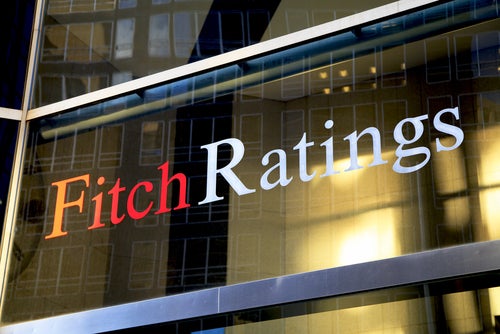
Fitch Ratings, a provider of global credit ratings, said it has taken “rating action” on a handful of mid-sized UK banking groups – all of which run asset finance divisions or subsidiaries – to reflect the downside risks to the banks’ credit profiles triggered by the coronavirus pandemic.
The banks named by Fitch with asset finance business, are:
- Investec Bank plc;
- Virgin Money UK plc;
- Close Brothers Group plc;
- Metro Bank plc;
- The Co-Operative Bank plc; and
- Paragon Bank plc
The London-based agency said it expected global economic growth to decline sharply in 2020 and it estimated that GDP growth in the UK could fall by close to 4% in 2020, “followed by a sharp recovery in 2021”.
Underlying this growth expectation, it said, is “the assumption that containment measures will be unwound in the second-half of 2020, with material downside risk to these economic forecasts,” Fitch said in a statement.
On the upside, Fitch said decisions taken by the UK government and the Bank of England to support the private sector with monetary and fiscal measures were positive for the banking sector.
Despite this, the rating company said it expected banks’ asset quality “to weaken compared with previous expectations and earnings to come under pressure from lower business volumes, higher loan impairment charges and pressure on net interest margins.”
How well do you really know your competitors?
Access the most comprehensive Company Profiles on the market, powered by GlobalData. Save hours of research. Gain competitive edge.

Thank you!
Your download email will arrive shortly
Not ready to buy yet? Download a free sample
We are confident about the unique quality of our Company Profiles. However, we want you to make the most beneficial decision for your business, so we offer a free sample that you can download by submitting the below form
By GlobalDataKatherine Long, an associate retail banking analyst with GlobalData, said: “For Paragon Bank, Close Brothers and Investec, the downgrade/negative outlook reflects the banks’ higher exposure to sectors that are likely to be badly affected by the COVID-19 crisis: SME lending, BTL mortgage lending, senior debt for development and niche lending such as aviation.
“As the crisis could precipitate higher levels of loan default in these sectors, bank assets that seemed safe a few months ago suddenly appear riskier but overall, those banks appear in good health.
“Metro bank, however, starts the crisis in a much weaker position, having made a loss last year of £53m. Lower overall UK growth combined with higher exposure to SME lending on top of a current restructure means 2020 will be a painful year to watch for Metro bank investors,” she said.
Fitch said the rating actions include upgrades, downgrades and affirmations of several issuer and issue ratings, which were placed on Under Criteria Observation (UCO) following the publication of Fitch’s new rating criteria on 28 February 2020. The affected ratings have been removed from UCO.
Fitch offered some rating drivers to explain its decisions, some are outlined below:
Close Brothers
Fitch said the fallout from the pandemic “has heightened risks to the group given its above-average exposure to SME lending through asset and invoice finance, to retail customers potentially affected by employment disruptions in motor finance, and to property lending that will suffer delays in completion and sales.”
It said the ratings of Close Brothers Group and Close Brothers Limited “reflect a strong record of performance through economic cycles, which has historically compensated their appetite for higher-risk lending” but added that in the current crisis, “we expect pressure on earnings through rising credit impairments and lower volumes.”
Investec Bank
Fitch said its action on Investec Bank plc (IBP) reflects the fallout from the pandemic crisis “represents a near-term risk to its ratings”.
It said: “The risks stem from the bank’s above-average exposure (as a proportion of gross loans) to sectors we consider as particularly vulnerable to disruption, such as small-ticket asset finance, aviation finance, corporate and acquisition finance.”
Metro Bank
The rating action taken by Fitch reflects heightened challenges to Metro Bank’s business model, earnings and ability to deliver its strategy, which the pandemic has added to.
It said: “The coronavirus disruptions make execution on Metro Bank’s strategy more difficult in the near-term because of weaker prospects for growth, lower interest rates, and slower demand for loans.
“The bank has been undergoing significant organisational changes, and its earnings were expected to be depressed by restructuring charges and a slowdown in lending.
“The pandemic also poses an operational challenge for Metro Bank given its small size, staff capacity and management turnover.
“Metro Bank’s earnings are very weak (£53m operating loss in 2019, excluding the impairment of tangible and intangible assets).
“Fitch expects that a return to profitability will be made more difficult by the coronavirus disruptions. Lower lending volumes, interest rates and transaction fees, and larger credit losses (from small amounts) will weigh on the 2020 loss.”
Paragon Bank
Fitch said Paragon had “a good record in maintaining sound asset quality and profitability, but we expect its businesses, particularly its SME and development finance business, but also buy-to-let (BTL) mortgage lending, to be at risk from asset non-performance and reduced profitability in the downturn.
“We also believe that funding growth at Paragon Bank will be harder to achieve, given possible pressures on saving rates if unemployment increases, and that the bank will find it harder to execute its strategy.”
The Co-op Bank
Fitch said the downgrades of the Co-operative Bank “reflect our view that the economic disruption in the UK poses a material risk to the bank’s capitalisation and earnings, as well as to the stability of the business model and to management’s ability to execute on its strategy to grow revenue and return to profitability, relative to when we last reviewed the ratings.”
“The bank enters the economic downturn from a position of relative weakness given its structurally loss-making profile. The bank is vulnerable to greater-than-expected losses and continues to face challenges in its ability to execute its future strategic initiatives.
“We also see a heightened risk of asset-quality deterioration, although this is partly mitigated by the secured nature of its loan book.
Virgin Money
Fitch the fallout from the pandemic “results in heightened risks to Virgin Money UK’s ratings since the bank enters the economic downturn from a position of relative weakness given its weak profitability compared with peers’ as the business continues to undergo restructuring following its 2018 merger.”
“We have reflected the highly likely impact of the economic and financial market fallout from the pandemic in a weaker assessment of earnings relative to when we last reviewed the bank’s ratings.
“We also see an increased likelihood of future asset-quality deterioration, particularly in SME lending and credit cards, as well as weaker capital generation,” the agency reported
Banks’ asset finance business operations
- Investec Bank has a subsidiary, Investec Asset Finance plc
- CYBG-owned Virgin Money plc runs an asset finance division
- Close Brothers Group plc operates an asset finance division
- Metro Bank plc operates two subsidiaries: SME Asset Finance Limited and SME Invoice Finance Limited
- The Co-Operative Bank plc runs its leasing through various subsidiaries (Second, Third and Fourth Roodhill Leasing Limited)
- Paragon Bank plc runs an asset finance division







